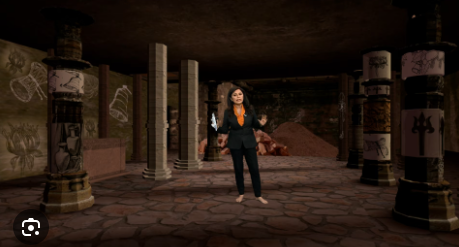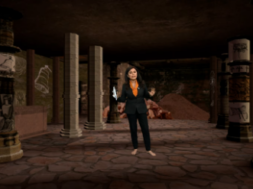
Manas Dasgupta
NEW DELHI, Jan 31: In a major victory for the Hindu side, a Varanasi district court on Wednesday granted rights to the Hindus to offer prayers inside the ‘Vyas Ka Tehkhana,’ the previously sealed basement area, inside the Gyanvapi mosque complex, adjacent to the famous Kashi Vishwanath temple.
The judge also said arrangements, including removal of barricades, are to be completed in a week. The court further said prayers should be conducted by priests from the Kashi Vishwanath Temple. “Hindu side allowed to offer prayers… district administration will have to make arrangements in seven days. Everyone will have the right to pray there,” Vishnu Shankar Jain, the lawyer for the four Hindu women petitioners in this case, said.
District Judge Ajay Krishna Vishwesha also asked the District Magistrate to take-over the basement and ensure that the puja starts in next 7 days. The court allowed a priest’s kin the right to worship deities in Gyanvapi mosque cellar, Mr Jain said. “…puja will start within seven days. Everyone will have the right to perform puja… Hindu side allowed to offer prayers at ‘Vyas Ka Tehkhana.’ The District Administration will have to make arrangements within 7 days,” Mr Jain added.
The mosque committee has said it would approach the Allahabad High Court to challenge the judgment. The mosque has four ‘tehkhana‘, or cellar, in the basement. One is still in the possession of a family of priests that used to live there. The family had argued that, as hereditary priests, they be allowed to enter the structure and perform pujas.
According to the petition, the priest, Somnath Vyas, used to perform prayers till 1993 when the cellar was closed. Vyas had petitioned that as hereditary pujari he be allowed to enter the tehkhana and resume puja.
It had earlier been claimed debris from statues of Hindu gods was found during a survey of the area. It had also been claimed parts of a pre-existing structure – ruled as a temple by the ASI report – including pillars, were used in building the mosque.
Today’s order comes a day after the four Hindu women approached the Supreme Court asking for excavation and scientific survey of a ‘shivling‘ reportedly found inside the sealed ‘wazukhana‘ area of the mosque complex.
This area had been sealed in 2022 following a Supreme Court order, but the Hindu side has now asked the court for the Archaeological Survey of India (ASI) to carry out another survey of the ‘wazukhana‘ area without harming the ‘shivling.‘
Last month, in a crucial judgement, the Allahabad High Court had rejected all petitions by the mosque committee that had challenged civil suits seeking restoration of the temple at the site. The High Court had heard, and rejected petitions, including two from the Uttar Pradesh Sunni Central Waqf Board, challenging the maintainability of a 1991 case before a Varanasi court.
The 1991 suit – filed on behalf of the Adi Vishveswar Virajman deity – sought control of the disputed premises. Challenging this, the Anjuman Intezamia Masajid Committee and the Waqf board argued the suit was not maintainable under a law that restricts alteration of the character of a religious places as it existed on Independence Day, i.e., August 15, 1947. The petitioners argued that because the dispute is of pre-Independence period it would not be affected.
On January 24, the Varanasi district administration had taken possession of the southern cellar of Gyanvapi mosque complex. The administration was following the orders of the Varanasi District Court, which had on January 17 appointed district magistrate of Varanasi as the receiver of the southern cellar of Gyanvapi mosque in a case filed by head priest of Acharya Ved Vyas Peeth temple, Shailendra Kumar Pathak.
The plea of advocate Vijay Shankat Rastogi to become a party to the Vyas’s suit was rejected the same day by the court. Varanasi District Magistrate S Rajalingam had said, “We have followed court orders and taken possession of the cellar. This was done following the court’s order regarding the same.”
The court order had come six days after the ASI survey report on the Gyanvapi mosque complex was made public last week. The ASI, tasked by the Varanasi district court to ascertain whether the mosque was “constructed over a pre-existing structure of a Hindu temple,” concluded that a temple “appears to have been destroyed in the 17th century, during the reign of Aurangzeb and part of it… modified and reused in the existing structure.”
Hindu litigants have claimed that the mosque was built on the site of the original Kashi Vishwanath temple after its destruction in the 17th century. The ASI had submitted its report to the court last month in a sealed cover.













